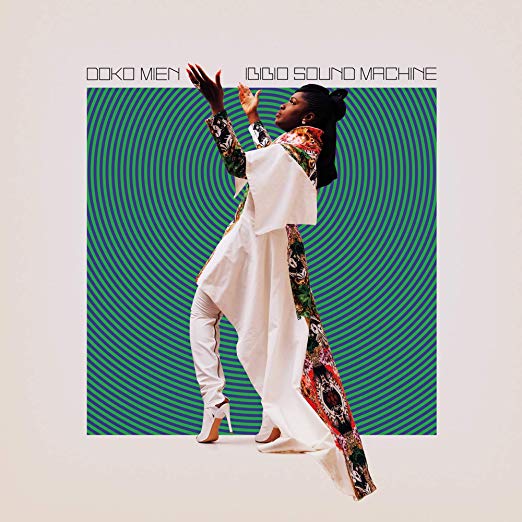
Ibibio Sound Machine
Doko Mien
Release Date: Mar 22, 2019
Genre(s): R&B
Record label: Merge
Music Critic Score
How the Music Critic Score works
Buy Doko Mien from Amazon
Album Review: Doko Mien by Ibibio Sound Machine
Very Good, Based on 5 Critics
Based on rating 8/10
Ibibio Sound Machine's sophomore album for Merge and third overall finds them building on the more production-savvy post-punk and electro soundclash tenets of 2017's Uyai and combining them with the militant Afrobeat grooves of their 2015 self-titled Soundway debut. Doko Mien reveals Ibibio Sound Machine as a restless outfit. Here, articulating their version of Nigerian-saturated roots Afrobeat, they assimilate and recombine crisp, synthetic, and organic beats, zigzagging Kraftwerk-ian synths, fuzzed-out psych guitars, whomping rubbery basslines, and a driving, punched-up brass and horn section that recalls the Tower of Power Horns as much as it does Fela Kuti's.
Based on rating 7/10
They proved as much with their break-out second album Uyai in 2014. At times manic, but always enthralling, it seamlessly blended what are fairly disparate styles - funk, afrobeat, disco, electro - into an utterly distinctive fusion. But dabbling in so many different genres could be a danger. Bands with a lesser conviction to their vision, inspired as much by African rhythms and sounds as modern post-punk and electro, might've muddied their own identity, coming off as a sort of Frankenstein's Monster of a group, unclear as to who they themselves actually are.
Based on rating 3/5
Captivating as Ibibio Sound Machine’s first two albums were - namely 2014’s self-titled debut and 2017's 'Unyai' - some of the electronic elements seemed a little superfluous, as if they'd been added into the mix solely to try and differentiate ISM's music from ’70s Afrobeat, funk and highlife. Though some songs did span genres to great effect, the cosmic noises on others like 'Power of 3' seemed to say, ‘of course this is a fresh sound - listen to the laser beams!’ Fortunately, that's not the case on 'Doko Mien'. The tunes are still busy and layered, but every element of them - electronic or otherwise - serves a purpose: synth beats vie with energetic percussion; funky bass lines intertwine with psych-rock guitar; and punchy horns cut through reverb in a pleasing fashion.
Opinion: Excellent
At a time when Korean boybands go global, Latin pop tops charts worldwide and Afrobeats pervades the UK rap scene, a London band which combines New York new wave and disco with Ghanaian highlife and Nigerian folk culture seems like a proposition with more mainstream potential by the day. Certainly Ibibio Sound Machine's trademark sound - a groove-driven melange of styles which also takes in gospel, funk, post- and electro-punk and contemporary R&B, alongside African polyrhythms, horns and guitar - is lively and luxurious enough for the eight-piece outfit to pursue next-level popularity with their third album. Pulling together the band's pile-up of influences is London-born, Nigerian-bred vocalist Eno Williams, who on Doko Mien convincingly shape-shifts between conventional power-diva, sultry R&B singer, the feral frontwoman of a post-punk girlband and pidgin English-speaking yarn-spinner, all the while maintaining her own distinctive vocal character.
Opinion: Excellent
Listening to London collective Ibibio Sound System has always been an immersive and invigorating experience, but on their third album 'Doko Mien', the eight piece wonders are heading deeper into their funk odyssey than ever before. While the music loses nothing in its thrilling Afro-electro rhythms and horn flecked grooves, this time it's delivered with an increased universality as Ibibio Sound System broaden out their lyrical approach to be more direct and questioning, addressing their own community as well as the world at large. "Guess we found a way to speak to you," sings frontwoman Eno Williams on highlight 'Guess We Found A Way', and, indeed, the band's connection with the audience is stronger than ever.
'Doko Mien'
is available now

